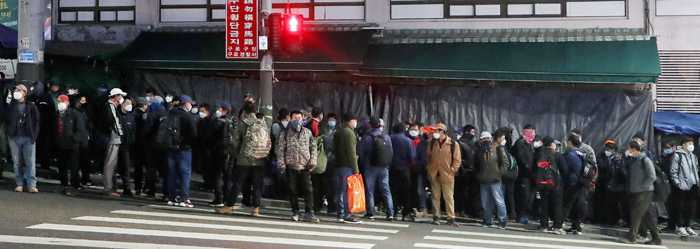Economy in Biggest Plunge Since Global Financial Crisis
25 April, 2020

Korea's economy shrank 1.4 percent through the first three months of the year, the largest plunge because the global financial crisis 11 years back. A sharp decline in private consumption triggered by the coronavirus epidemic was largely at fault.
THE LENDER of Korea said Thursday that Korea's GDP declined to W460.9 trillion on-quarter, the worst contraction because the fourth quarter of 2008 (US$1=W1,230). Private consumption plummeted 6.4 percent as Koreans stopped buying cars and clothes, eating in restaurants and enjoying leisure activities.
The epidemic brought on the largest decline in private consumption since the first quarter of 1998 at the height of the Asian financial meltdown. Exports fell two percent and imports 4.1 percent.
Analysts expect the economy to be hit even harder in the second quarter, when the impact of the epidemic reaches beyond private consumption and starts being reflected in exports. Park Yang-su at the BOK said, "Second-quarter figures are essential for the economy to shift to growth, so everything depends on whether private consumption recovers and just how much exports will decline."
Day laborers wait in line to search for manual jobs in Seoul on Thursday. /Newsis
Exports still fared relatively well in the first quarter, however the near-term prospects aren't bright after the deepening financial slowdown in the U.S. starts to bite.
Private consumption in comparison is beginning to show signs of a slow recovery. Electricity usage, traffic volume, movie theater attendance and passenger volume on domestic flights all started growing in the third week of the month.
The BOK is bracing for two consecutive quarters of decline, which would total a full-fledged recession. "During the global financial meltdown in 2008, Korea's monetary fundamentals were sound, which made an instant recovery possible, but the situation is different now," said Cho Kyung-yeop at the Korea Economic Research Institute.
"It will take considerable time for Korea's economy to emerge from a significant slump whether or not the epidemic ends unless innovative, business-friendly changes are made in government policy away from the minimum-wage hike, shortened work hours and heavy welfare spending."
But Standard and Poor's retained Korea's sovereign credit rating at AA and projected the country's economy will grow around five percent next year after shrinking 1.5 percent this season. "The stable outlook reflects our expectation that Korea can absorb the undesireable effects of the COVID-19 pandemic and its own economy will rebound in 2021," it said.
S&P explained that Korea's export-dependent manufacturing sector, which accounts for greater than a quarter of GDP, has diversified into highly competitive electronics, automobile and chemical sectors, as the country's export markets also have increased.
Source:
